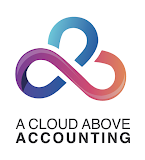Cash flow refers to the movement of money in and out of your business. Knowing how to improve cash flow is crucial for your business’s health and growth. It allows you to pay your bills on time, invest in your business, and take on new opportunities. Without a clear understanding of your cash flow, it’s difficult to make sound financial decisions. You might end up in a situation where you have to scramble for funds to cover unexpected expenses, or worse, miss out on opportunities because you don’t have the cash flow to support them.
In this guide, we’ll look at the connection between bookkeeping and cash flow, provide practical strategies for improvement, and show you how to leverage technology for better financial management.

Understanding Cash Flow
Let’s start by breaking down the basics of cash flow. Cash flow refers to the net movement of cash in and out of your business over a specific period. There are two main components:
- Cash Inflow: This is the money your business receives from sales, investments, and other sources of income.
- Cash Outflow: This is the money your business spends on expenses like rent, payroll, inventory, and supplies.
The goal of good cash flow management is to make sure that your cash inflow consistently exceeds your cash outflow. This allows you to maintain a positive cash balance and avoid financial difficulties.
Identifying Cash Flow Issues
Now that you understand the basics of cash flow, how can you tell if your business is struggling? Here are some common signs of poor cash flow:
- You’re constantly late on payments to suppliers or vendors.
- You have to rely heavily on credit cards or loans to cover expenses.
- You’re struggling to meet payroll.
- You have difficulty investing in growth opportunities.
If you’re experiencing any of these signs, it’s a clear indication that you need to take action to improve cash flow.
The Connection Between Accurate Bookkeeping And Cash Flow Management
Accurate bookkeeping is crucial for effective cash flow management, providing a clear picture of a business’s financial health, allowing you to make informed decisions that improve cash flow.
1. Real-time Financial Visibility and Enhanced Decision-Making
- Accurate bookkeeping provides real-time financial status, enabling quick identification of cash flow issues and corrective action.
- Regular updates allow tracking of incoming payments, expense monitoring, and future cash needs forecasting.
2. Informed Decision-Making
- Accurate financial data helps with effective resource allocation, prioritizing expenses, and cost reduction.
3. Improved Invoicing and Collections
- Accurate bookkeeping guarantees proper recording and invoicing of sales and services, preventing missed billings and ensuring revenue collection.
- Accurate records of customer payments help identify late payers and collect outstanding debts.
4. Better Tax Management
- Accurate financial records facilitate accurate tax preparation and planning, reducing penalties or missed deductions.
5. Easier Access to Financing
- Accurate bookkeeping demonstrates financial responsibility and provides necessary documentation, enhancing funding requests and improving cash flow.

How To Improve Cash Flow Through Accurate Bookkeeping
Improving your cash flow starts with implementing sound bookkeeping practices. Here are some key strategies to help you enhance your cash flow management:
- Implement a powerful accounting system
Invest in reliable cloud bookkeeping services or software that allows you to track income and expenses in real-time. This will provide you with up-to-date financial information and make it easier to generate reports, invoices, and financial statements. - Regularly reconcile your accounts
Reconcile your bank statements, credit card statements, and other financial accounts at least monthly. This practice helps you catch any discrepancies early and makes sure that your books accurately reflect your financial position. - Track accounts receivable diligently
Keep a close eye on your accounts receivable aging report. This will help you identify late-paying customers and take prompt action to collect overdue payments. Consider implementing automated reminders for outstanding invoices to improve collection rates. - Monitor accounts payable
Keep a close watch on your accounts payable to make sure you’re not paying bills too early or too late. Timing your payments can help you improve cash flow while maintaining good relationships with suppliers. - Forecast cash flow regularly
Use your accurate financial data to create cash flow forecasts. This will help you anticipate potential cash shortages and plan accordingly. Regular forecasting allows you to make proactive decisions to improve your cash position. - Analyze financial ratios
Calculate and monitor key financial ratios such as the current ratio, quick ratio, and cash conversion cycle. These metrics can provide valuable insights into your cash flow health and help you identify areas for improvement. - Conduct regular financial reviews
Schedule regular reviews of your financial statements, including your income statement, balance sheet, and cash flow statement. This practice will help you spot trends, identify potential issues, and make informed decisions to improve your cash flow.
Improving Cash Flow In Challenging Times
- Build a cash reserve
One of the best ways to safeguard your business against cash flow challenges is by building a cash reserve. A cash reserve is a fund set aside to cover unexpected expenses or periods of slow cash flow. Accurate bookkeeping helps you determine how much cash you can set aside each month without negatively impacting your operations.
By maintaining a cash reserve, you can weather financial storms more easily and avoid the need to take on debt or sell assets in a crisis. Aim to build a reserve that covers at least three to six months of operating expenses. - Secure financing before you need it
If you anticipate cash flow challenges, it’s wise to secure financing before you actually need it. Having access to a line of credit or a small business loan can provide a financial cushion during tough times, allowing you to maintain positive cash flow and keep your business running smoothly.
Accurate bookkeeping makes it easier to apply for financing, as you’ll have the necessary financial records ready to present to lenders. By securing financing in advance, you can avoid the stress of scrambling for funds when cash flow is tight. - Seek professional advice
When cash flow issues arise, it’s often helpful to seek professional advice from an accountant or financial advisor. A professional can help you analyze your cash flow situation, identify the root causes of your challenges, and develop a plan to improve cash flow.
At A Cloud Above Accounting, we specialize in helping small businesses manage their finances and improve cash flow. Our cloud accounting services are designed to provide real-time insights into your cash flow, helping you make informed decisions and stay on top of your finances.
Common Cash Flow Mistakes To Avoid
- Overestimating revenue
One of the most common cash flow mistakes small business owners make is overestimating revenue. When you overestimate how much money will come in, you may overspend or fail to set aside enough cash for future expenses. Accurate bookkeeping helps you avoid this mistake by providing a realistic view of your income and allowing you to base your financial decisions on actual data rather than projections. - Neglecting to follow up on invoices
Another common mistake is neglecting to follow up on unpaid invoices. When customers don’t pay on time, it can create a cash flow gap that disrupts your operations. By maintaining accurate records of your accounts receivable, you can stay on top of unpaid invoices and take prompt action to collect payment. - Failing to plan for taxes
Taxes can have a significant impact on your cash flow, especially if you’re not prepared for them. Failing to set aside enough cash for taxes can lead to issues when tax season rolls around. Accurate bookkeeping helps you track your tax liabilities throughout the year, making sure you have the funds available to meet your obligations. - Ignoring cash flow forecasting
Finally, ignoring cash flow forecasting is a mistake that can lead to serious cash flow problems. Without a clear picture of your future cash inflows and outflows, you may be caught off guard by financial challenges. Accurate bookkeeping is essential for effective cash flow forecasting, enabling you to anticipate potential issues and take proactive steps to improve cash flow.
Improving cash flow is essential for the success of your small business. By implementing the strategies outlined in this blog post and partnering with a trusted bookkeeping service like A Cloud Above Accounting, you can take control of your finances and achieve your business goals. Contact us today to learn more about our cloud bookkeeping services and how we can support your financial success.
FAQs
Yes, you can. Consider using bookkeeping catch up services to bring your records up to date quickly, allowing you to start managing your cash flow effectively.
Cash flow refers to the actual movement of money in and out of your business, while profit is the financial gain after subtracting expenses from revenue.
A cash flow forecast predicts the timing and amount of cash moving in and out of your business, while a budget plans how you intend to allocate your resources.
Yes, demonstrating strong cash flow management can make your business more attractive to lenders, potentially leading to better loan terms.
Proper pricing ensures you’re generating enough revenue to cover costs and maintain positive cash flow while remaining competitive.
Efficient inventory management prevents tying up too much cash in stock, ensuring you have enough products to meet demand without overstocking.



